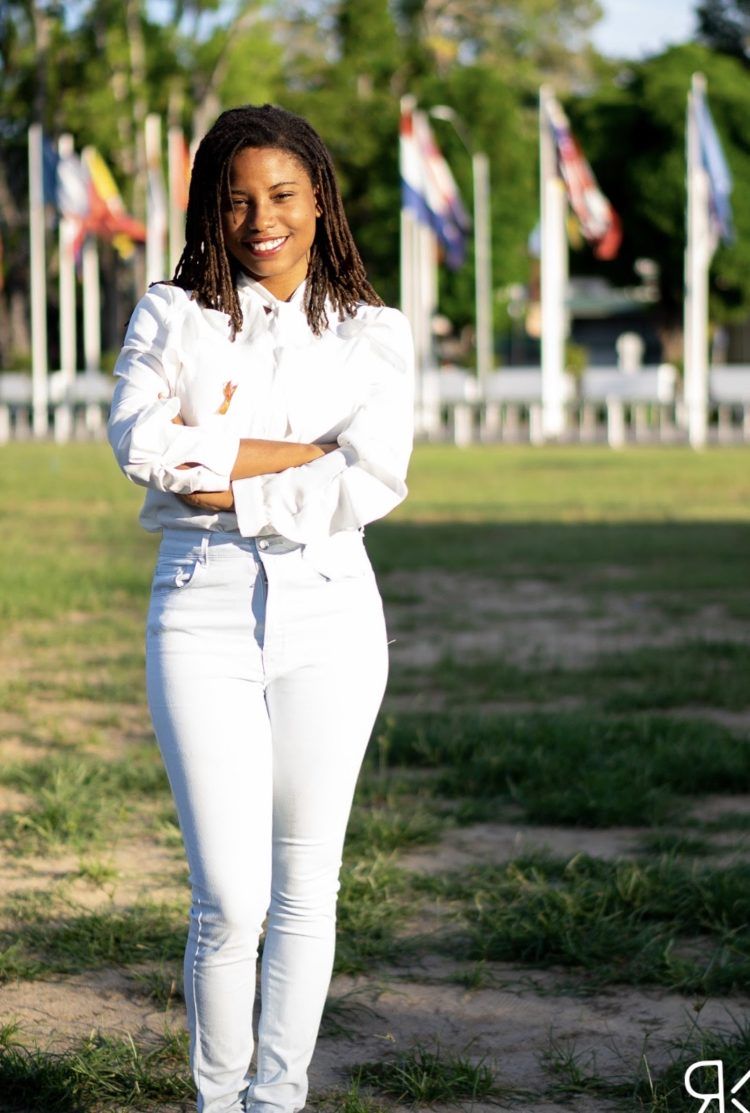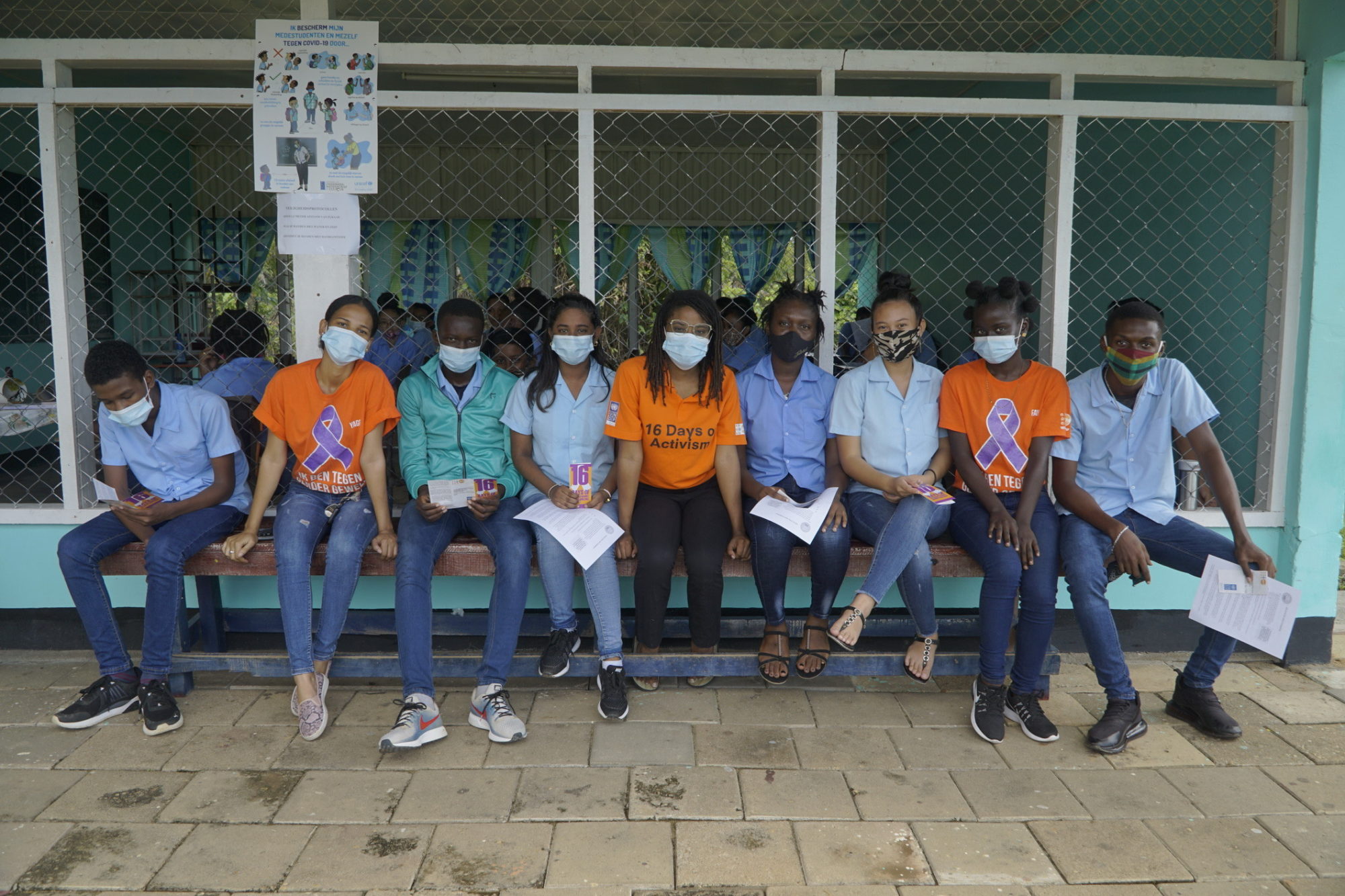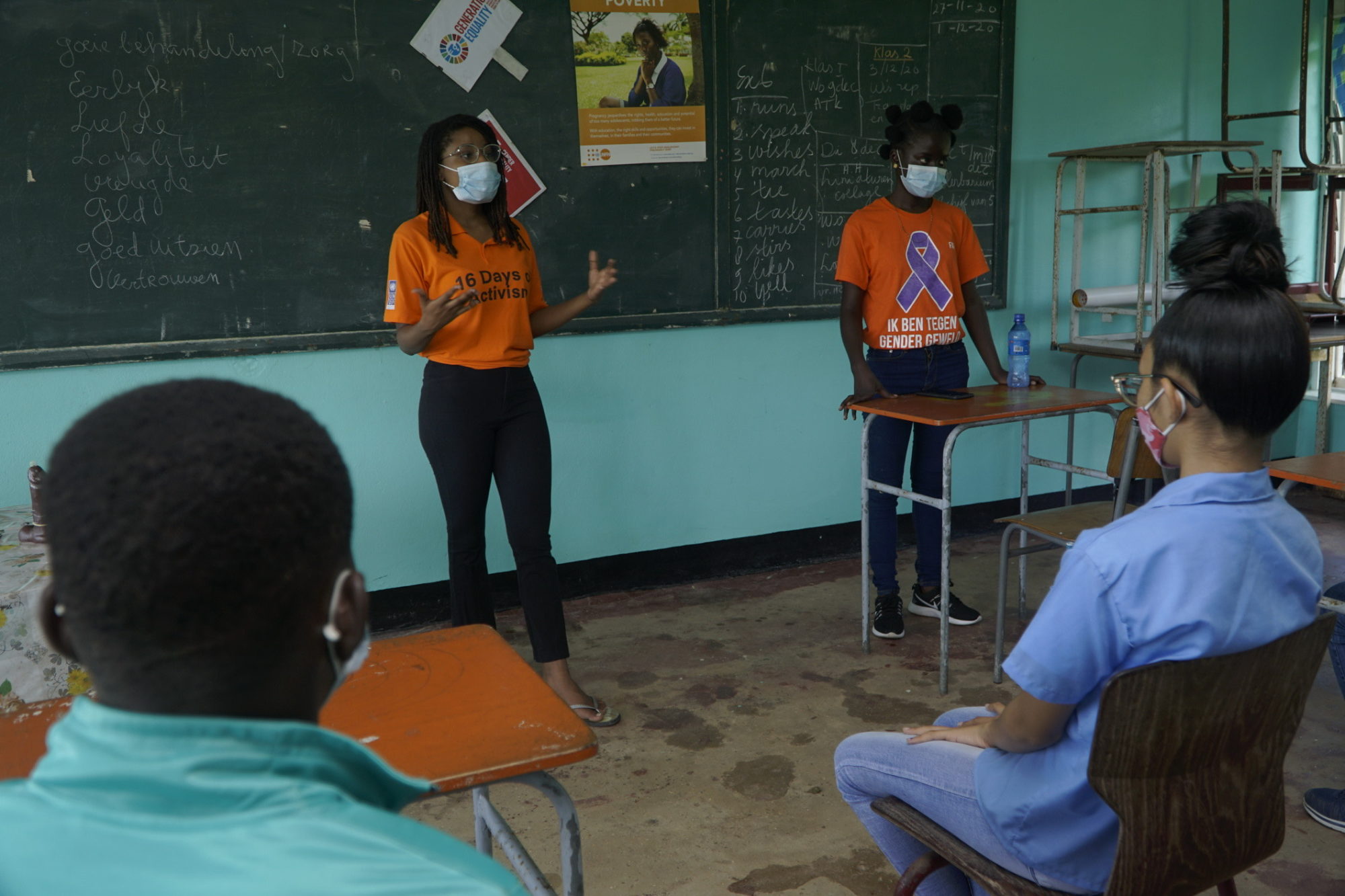Making that distinction between passion, greed and opportunity #IVLP

On how to make a change, make your voice heard and become an influential leader. Meet Fay King – a 22-year-old female chairperson of the Youth Advisory Group of the UN Population Fund Suriname, who advocates for sexual, reproductive health and women’s rights.

What is it that you do in your everyday life?
I’m a student. I’m in my last year of International Business and Management degree. I also currently work at a local bank. When I’m not busy studying, working, or advocating and fighting for women’s rights, because that’s really what my life mostly consists of, I really like to go out with my friends and spend time with my family as I am a very family-oriented person. Sadly, it can’t happen that much at the moment because of COVID-19. I also like to spend time with my dog. I love my dog. And I love watching series, whenever I have the time to do that. So, I really do the typical young adult stuff when I’m not busy advocating.
What are the issues that you advocate for?
I’m an advocate for women’s rights, comprehensive sexuality education, and sexual reproductive health and rights issues. At the moment, I’m really active in ensuring that comprehensive sexuality education becomes a reality in Suriname. We’re also actively fighting for women’s rights against domestic and gender-based violence, which has been on the rise recently, especially since the pandemic started.
Could you tell me a bit more about your organizations i.e., Youth Advisory Group of the United Nations Population Fund Suriname and the Youth Alliance for Safe and Healthy Homes?
I am the female chairperson of The Youth Advisory Group of the UNFPA Suriname. We educate our communities, especially youth, about gender equality, sexual reproductive health and rights, and how these issues influence the development of the population. We love doing field work and organizing various projects. Due to the pandemic we are trying to find innovative ways to be able to spread the message. We’re also working on a policy level to ensure that comprehensive sexuality education becomes the reality. We have worked with the Ministry of Youth Affairs, we had conversations with the Ministry of Education, so we’re already making those first steps to make a wider change.
The Youth Alliance is an initiative of various organizations that fight for gender-equal rights, children’s rights, and against domestic violence. When it comes to this pandemic, not only are other health issues pushed aside, but social issues too – the main focus being just on the COVID-19 itself. That’s why we decided to come together to raise awareness also about these issues.

What made you engage with these issues in the first place?
Honestly, I was just a bored teenager. I didn’t have a lot to do and a friend of mine asked me to join. I said “OK, sure, I have nothing else to do.” She invited me to join the first activity in the city. We were so unprepared, we didn’t even educate ourselves properly, but it was such an amazing moment. I really felt the rush. We were doing a survey about people’s knowledge of sexual health. For me, it was just so alarming to see how uninformed people were when it came to certain facts. I enjoyed the activities we did, and I was so inspired to educate others more. I’d always been one of those teenagers concerned about human rights, social and global issues because I grew up in that environment. I live with my mom and my aunt. My mom is very into climate change and climate rights, and my aunt worked for the Red Cross. But I didn’t think I would get interested in activism myself. Now I’m the one in the family that’s really all about human rights. I really had a passion for it. What I really enjoyed the most was being able to help my friends around me that were afraid to talk about certain topics. I was able to be that friend to give the information and help.
Could you tell me a bit more about the International Visitor Leadership Program? What does the program look like now during the pandemic?
I was nominated by the US Embassy to take part in it, just like all other participants. Originally it was supposed to be an exchange program (us travelling to the US), but instead we did Zoom meetings, trainings and discussion panels. So, it was very interesting. It was also very fun. At the beginning of every meeting, they showed us videos of those cities that we were supposed to visit, and we learned more about their culture. We also had sessions with various important people within those cities. Then we had trainings about the youth groups and organizations from these cities and their work. Being lectured by speakers from different universities, we also learned about media literacy and how to improve as a leader, develop leadership skills and styles.
How has participating in the IVLP benefitted you as a young leader?
It educated me more about different programs that I could use within my country. It was also interesting to see how they handle certain situations within their countries. During the political season in America, there was one training session of a Republican and a Democratic Group in which they showed us how to work on a policy level. I think that’s very important because I guess the older we get, the more we understand the importance of getting things changed at the policy level. Especially as youth leaders, we know the effects politics has on us and on the issues we stand for. But with the other youth and younger youth it’s difficult to get that message across, so it was very interesting to see what techniques they used.
Writing for the magazine that engages mainly young people, I need to ask you a question that I think young people will find especially important: what allowed you to become someone who drives a real change at such a young age? What skills do you think are essential for change-making?
I think what people are interested in is how you present yourself, as well as your organization and its message. If you’re doing something, people will notice it if you’re really passionate about it. From the first activity I really had to talk to strangers, and I had to be OK with hearing “No, I don’t want to listen to you,” or “No, I’m in a rush.” I really had to find that passion within myself. Just be passionate for what you stand for and what the message is. It’s also focusing on that key message. When you find yourself in such a field, you want to change the entire world, but you have to focus on what is key for you right now to ensure that you can really make a change in that area.

What do you find the hardest in your work?
When you’re a young leader, people will try to misuse your message or misuse your influence. The hardest thing for me is not to fall for that. There is also that fear of impostor syndrome. It’s the feeling of not doing enough and wanting to grab every opportunity, but that’s very dangerous for our work, especially as a youth leader, where you don’t get a lot of opportunities. It’s making that distinction between passion, greed and opportunity. So, when the opportunity presents itself, you really need to put it into perspective: am I doing the right thing? Does it fall in line with the message? Am I doing it for myself or am I doing it for the greater good?
And what are you most proud of?
That I was able to make an impact. When people remember what I stand for, remember my message, try to refer to me or these issues, I feel proud, and I feel like my voice is being heard.
On the womendeliver.org website I found your quote saying: “Our generation is very aware of how inclusive and equal we want our future to look like.” I think it’s especially important today as we find ourselves in a quite polarized political system. So, what would you advise these young people who see the need for a change but don’t know how to start working on it?
I would say – do not underestimate your voice and your message. I feel that even when I talk to people younger than me, they’re very aware of social issues. I think a lot of generations didn’t have that. We shouldn’t underestimate our power and our voices. We should be aware that we’re stronger together. So, it is really pushing that message, and not being afraid to make that impact.
And Fay, what are you most excited to do when the lockdown is over?
Just being with people again. I have a very large family, so I guess just being with them and not feeling scared for them or myself. And going to restaurants because I love eating out, so I can’t wait to do that again. Also, to actively do field work again. And maybe traveling.
Fay King is 22-year-old chairperson of the Youth Advisory Group of the UNFPA Suriname, a member of the Youth Alliance for Safe and Healthy Homes, A Women Deliver Youth Leader, Part of the PAHO Youth for Health Group and in her last year of International Business and Management Bachelor’s degree. As a very active young leader she was also chosen by the U.S. Embassy in Suriname to take part in the 2020 International Leadership Visitor Program.
Photos: UNFPA Caribbean


